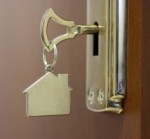 By: David Hirshfeld
By: David Hirshfeld
A confluence of forces brought about by lawmakers, insurance companies and regulators have caught recovery residences in the eye of a perfect storm here in Florida. Senate Bill 582 proposes to mandate that Florida sober homes and their owners be registered, inspected and licensed; but really, that bill may not be necessary due to other factors. Florida’s Department of Children and Families (“DCF”) has been using Section 65D-30.007 of its Administrative Code to require that sober homes be licensed for Residential Treatment if any resident at that sober home is also a patient at a licensed treatment program owned by the same person or entity that owns the sober home.
The actual language of the regulation exempts sober homes that provide only meals and minimal services at the home (i.e. no more than Alcoholics/Narcotics Anonymous groups), as long as the patient is not required to live in the sober home as a condition of receiving treatment in a licensed program owned by the same provider. DCF, however, now interprets the regulation more expansively so that a treatment provider that gives its patients the choice of living in its or any sober home is still required to obtain a Residential Treatment license and be regulated by DCF.
The pressure placed on sober home operators by DCF’s expansive use of its regulation is compounded by the fact that market forces have driven sober home providers to get licensed and open their own treatment programs, which puts them squarely in DCF’s cross-hairs. Historically, sober homes have generated strong revenues by conducting CLIA-waived toxicology screens on their residents. Over the past year that revenue stream has been reduced to a trickle as a result of a drastic reduction in reimbursement for these types of toxicology screenings. When the reimbursement for the CLIA-waived toxicology screens was reduced, sober home operators flocked to also become licensed program operators and laboratory owners as a means of replacing the lost toxicology revenue. As a result there are fewer and fewer sober homes that are not owned by providers who also own treatment programs.
The specter of regulation as a Residential Treatment facility under Section 65D-30.007 is not so bad, in and of itself, since it is the same review process that applies to licensed treatment program owners; however, the actual building must meet may be restricted from operating in certain neighborhoods by zoning laws.
By using Section 65D-30.007 to require these “co-owned” sober homes to become licensed and regulated, DCF may have just obviated the need for Senate Bill 582 in large part. Providers are urged to contact their health care attorneys for advice as to how to structure, or restructure, their organizations to avoid triggering the licensure requirement of this regulation.
